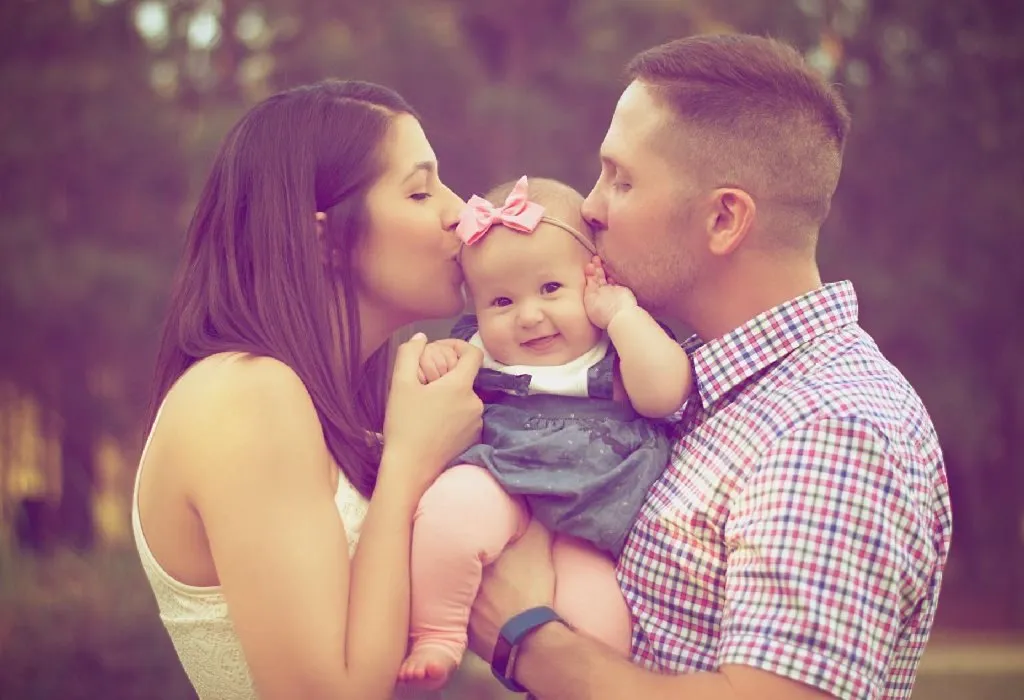The arrival of a newborn is a joyful event that signifies the beginning of a new life, not just for the baby, but also for the parents. As exciting as this phase may be, it also brings about a myriad of emotional and physical changes, especially for the mother. These changes can subtly or significantly impact the dynamics of a relationship, leading to postpartum marriage problems. This blog post aims to delve deeper into these postpartum challenges and offer constructive strategies for couples navigating their way through this complex landscape.
Contents
Is It Normal To Have Relationship Problems After Having A Baby?
 Yes, it is completely normal for couples to experience relationship changes and challenges after having a baby. The new mother, in particular, may be grappling with postpartum hormonal changes, physical recovery, and the demands of breastfeeding. All of which can lead to exhaustion and mood swings. Both parents may find themselves sleep-deprived and stressed, trying to balance the care of the baby with their other responsibilities, which can inadvertently cause strain on the relationship.
Yes, it is completely normal for couples to experience relationship changes and challenges after having a baby. The new mother, in particular, may be grappling with postpartum hormonal changes, physical recovery, and the demands of breastfeeding. All of which can lead to exhaustion and mood swings. Both parents may find themselves sleep-deprived and stressed, trying to balance the care of the baby with their other responsibilities, which can inadvertently cause strain on the relationship.
That being said, it’s important to understand that these challenges do not indicate a failing relationship but are part of the transition into parenthood. It may be beneficial to seek support from professionals such as therapists or counselors if the challenges persist. Remember, it’s not only about becoming parents but also about growing and evolving as a couple.
What Are Some Postpartum Marriage Problems?
The following are some common postpartum marriage problems that you should be aware of:
Changes in Roles and Responsibilities
The birth of a baby changes the dynamics of a relationship substantially, as partners transition into their new roles as parents. For instance, one partner may shoulder the majority of childcare duties while the other may take on the role of the primary breadwinner. This change can sometimes lead to feelings of imbalance or unfairness
Particularly if one partner feels overburdened or if their contribution is unacknowledged or undervalued. The shift in roles also might challenge previous assumptions about household responsibilities and leisure time, causing potential tension.
Lack of Sleep
A newborn’s sleep schedule is unpredictable, and frequent nighttime feedings are common, leading to interrupted sleep for both parents. Chronic sleep deprivation can cause various side effects, such as irritability, difficulty in concentration, and decreased patience, which can exacerbate minor disagreements and result in increased tension and conflict. Lack of restful sleep also affects mental and physical health, which can further strain the relationship dynamics.
Hormonal Changes
After childbirth, a woman’s body undergoes a significant hormonal shift as it adjusts to post-pregnancy life. These changes can significantly impact a woman’s emotional wellbeing, often leading to mood swings, anxiety, and even conditions like postpartum depression. If not properly understood, these emotional changes can place a strain on the relationship. The partner might misinterpret these emotional shifts as personal or indicative of relationship issues, leading to misunderstanding and conflict.
Diminished Sexual Intimacy
After childbirth, factors such as physical exhaustion, hormonal changes, body image issues, and the responsibility of caring for a newborn often lead to a decrease in sexual desire or activity. If not properly communicated, this change can lead to feelings of rejection or neglect in the other partner. This situation is delicate and requires open communication and understanding between the couple, acknowledging that this phase is temporary and linked to the body’s recovery process.
Differing Parenting Styles
It’s not uncommon for couples to have different perspectives or ideas about parenting, especially if it’s their first child. These differences can involve various aspects such as feeding (breastfeeding vs. formula), sleeping arrangements (co-sleeping vs. crib), and approaches to discipline. If these differences aren’t discussed and reconciled, they can lead to conflict and resentment. It’s crucial to have these conversations early on and arrive at a consensus or compromise that respects both parents’ perspectives.
Loss of Individual Identity
 Transitioning into the role of a parent often means less time for personal interests and activities. The overwhelming responsibility of taking care of a newborn, coupled with sleep deprivation, can leave little room for personal growth or hobbies. This shift can sometimes lead to feelings of loss of personal identity or independence. That can be a significant source of frustration or resentment. If not addressed, these feelings can impact the relationship negatively.
Transitioning into the role of a parent often means less time for personal interests and activities. The overwhelming responsibility of taking care of a newborn, coupled with sleep deprivation, can leave little room for personal growth or hobbies. This shift can sometimes lead to feelings of loss of personal identity or independence. That can be a significant source of frustration or resentment. If not addressed, these feelings can impact the relationship negatively.
Decreased Quality Time Together
The newborn phase requires a significant amount of time and energy from parents. Between feedings, diaper changes, and trying to catch up on sleep, there can be little to no time left for couples to connect or engage in shared activities. This lack of quality time can lead to feelings of disconnection or neglect, affecting the overall emotional intimacy and health of the relationship.
Financial Stress
Raising a child can place a significant financial burden on couples. The added expenses of diapers, formula, baby gear, childcare, and potential medical costs can strain the budget. If not planned for, these financial pressures can lead to stress and conflicts around money management, spending priorities, and financial responsibilities, which can negatively impact the relationship.
Disconnection from Social Circles
With the arrival of a baby, parents, especially mothers, may find themselves distanced from their previous social activities and friendships. The intense focus on the baby’s needs, coupled with a lack of time and energy, often results in reduced social interaction. This isolation can contribute to feelings of loneliness, stress, and depression, which can create tension within the marital relationship.
Unresolved Relationship Issues
If a couple has pre-existing relationship issues, the stress and responsibility that come with a newborn can amplify these problems. The added pressure can make unresolved conflicts more prominent, leading to increased tension and potential relationship breakdown. It is essential to address and resolve any outstanding relationship issues before the arrival of the baby or seek professional help if needed.
How To Deal With Postpartum Marriage Problems?
 Postpartum marriage problems, though challenging, are not insurmountable. The arrival of a new baby is a phase of immense change for both partners, and understanding that this phase is temporary can offer some relief. Here are some strategies to help couples deal with postpartum marriage problems:
Postpartum marriage problems, though challenging, are not insurmountable. The arrival of a new baby is a phase of immense change for both partners, and understanding that this phase is temporary can offer some relief. Here are some strategies to help couples deal with postpartum marriage problems:
Open and Honest Communication
The key to resolving many relationship issues lies in effective communication. It’s important to express feelings, concerns, and expectations without assigning blame. Discuss your fears, frustrations, changes in your roles and responsibilities, and even your sexual intimacy concerns. This open dialogue can help prevent misunderstandings and bridge any emotional gaps that may have formed.
Mutual Understanding and Patience
Recognize that this is a period of transition for both partners. Hormonal changes, sleep deprivation, and the stress of being new parents can cause mood swings and tension. Be patient with each other. If your partner seems distant or irritable, it’s most likely due to these changes and not a reflection of their feelings towards you.
Establish a Routine
As much as possible, try to establish a routine. It may take some time to get into a rhythm that works for everyone, but having a structure can reduce stress and make the day feel more manageable.
Share Responsibilities
Share baby care and household chores. This distribution can prevent resentment from one partner feeling overburdened. Even simple tasks such as changing diapers, doing laundry, or cooking meals can be shared or alternated.
Find Time for Each Other
It’s easy to get lost in the duties of parenthood and forget about each other’s needs. Try to set aside some time for each other every day, even if it’s just a short conversation or a shared meal. Small gestures of affection or appreciation can also go a long way.
Seek Professional Help
If feelings of sadness, anxiety, or discontent persist, it may be helpful to seek professional help. Therapists and counselors can provide valuable tools and strategies to navigate through these challenges. If a new mother is experiencing severe postpartum depression, medical treatment may be necessary.
Always remember that it’s perfectly normal to experience some degree of relationship strain during the postpartum period. It’s a time of tremendous change. And it’s important to navigate these changes together, with understanding, patience, and open communication. The challenges of this period can indeed put a relationship to the test, but they also present an opportunity for growth and deeper bonding.
Conclusion
In conclusion, postpartum marriage problems are a common, albeit challenging, aspect of transitioning to parenthood. The period following the birth of a baby can present significant changes and potential stresses in a relationship. It is important to remember that these are not indicators of a failing relationship, but rather part of a normal adaptation process.
By treating these challenges as opportunities for growth, couples can emerge stronger and more united, cultivating a deeper bond not only as parents but also as partners. Marriage is a beautiful journey, However every marriage encounters challenges. If you have any queries regarding Online Marriage Counseling experienced therapists at CoupleMantra can help: Book a trial couple therapy session


